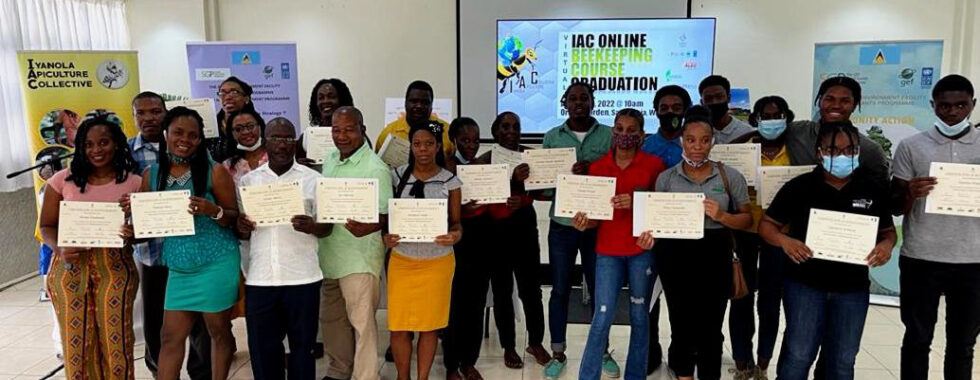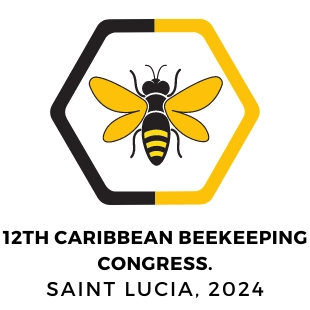Online beekeeping course first cohort graduates in April 2022!
History, in beekeeping in the Caribbean, was made with the completion of the first cohort of students from the online beekeeping course.
In 2020, the Global Environment Facility (GEF) Small Grants Programme (SGP) received a strategic grant to implement an innovation programme, with south-south cooperation, in the field of Apiculture in seven participating countries namely St. Lucia, St. Vincent and the Grenadines, St. Kitts and Nevis, Dominica, Grenada, Samoa and Trinidad and Tobago.
In Issue 6 (August to December 2021) of this newsletter, we indicated that the online course was being developed and would be available in early 2022. The course was completed and registration was opened in January 2022, for interested persons from the Caribbean.
In total, 141 persons registered for the course from 6 countries: Anguilla, Antigua, Grenada, St. Kitts and Nevis, St. Lucia and Trinidad and Tobago. The course is an 8 week course covering 13 theoretical modules, after which a general exam was given. As of March 31st 2022, there are 103 persons who were able to complete their coursework on time. Of these, 100 have already completed, as indicated in the breakdown of which is provided below.

The class also successfully developed trust and communication amongst regional beekeepers. Sessions were held every Tuesday where persons pursuing the course were able to ask questions pertaining to the content online. These discussions were always very engaging and helped to bridge the gap between persons of different skills and backgrounds.
A course evaluation form was completed and distributed to the participants. Preliminary feedback for the course has been very positive. Experienced beekeepers stated that the course added to their knowledge on beekeeping and made them made me more confident and able to work with my bees, New beekeepers stated that there were generally very excited about doing practical beekeeping and believed that course content adequately prepared me for practicals, They also stated that the course content helped them build their confidence in beekeeping. All of the participants indicated that they would recommend the course to others. The final evaluation of the course done by the first cohort will be discussed later, when completed.

This next step in this beekeeping course is the completion of the practical training. Country mentors have already been identified and will be working with the Master Beekeeper, Richard Matthias to complete the practical training.
Look forward to further information on the development of this project across the region in later issues!


